Discover the history of the microscope through
Professor Liakat Ali Parapia’s collection
Starting from the 1840s Professor Parapia traces microscope development from an early brass model which uses a candle as the light source to the first mass-produced ‘Edinburgh student microscope’ right up to a modern Leica DMLB fluorescence - the ‘Rolls Royce of microscopes’ - used for digital imaging today.
The collector
For over 40 years Professor Liakat Ali Parapia has collected antique microscopes and medical equipment. His fascination with the history of haematology grew alongside his career as a research director and consultant haematologist in Bradford.
Today Professor Parapia owns over 100 rare and fascinating artefacts from early brass microscopes to serrated crown trephines and early aspiration needles. Every piece played a role in the development of haematology treatment and research over the last century.
Enjoy more of Professor Parapia's collection of microscopes below:
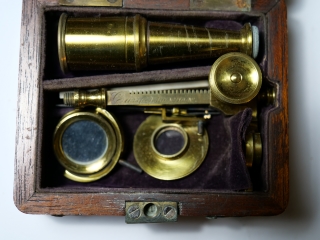
Travel microscope 18th century
© L A Parapia
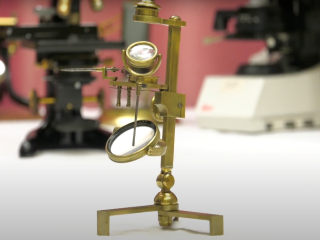
Universal compound microscope 1790 (close up)
© BSH
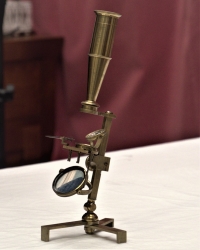
Universal compound microscope 1790
© BSH
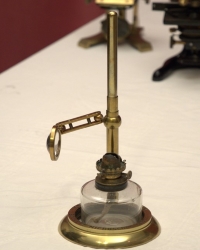
Lantern light source possibly 1800
© BSH
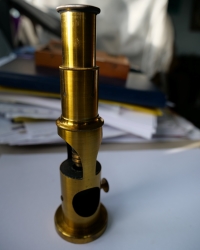
Drum microscope
© L A Parapia
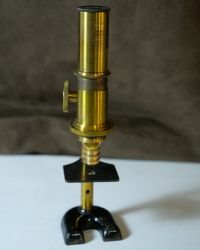
Victorian microscope
© L A Parapia

